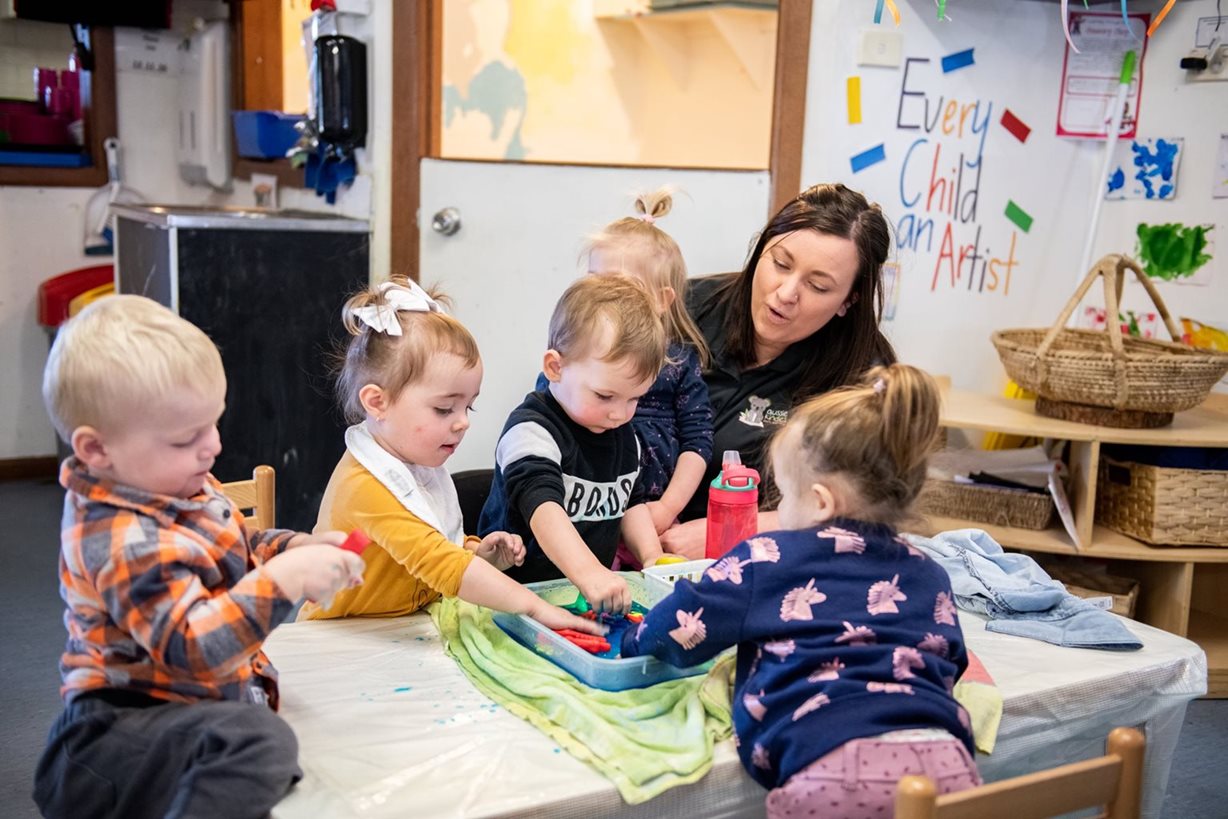
If you’ve ever had to break up a sibling standoff over a single toy, you know that teaching young children to share takes time, patience, and a little creativity. But the good news? It’s a skill that can be learned - and nurtured - with gentle, consistent support.
At Aussie Kindies, we understand that toddlers and preschoolers are still learning what it means to take turns, wait patiently, and think about others. Sharing doesn’t happen automatically - but with the right environment, it can become part of everyday play.
Here’s how you can support your child’s learning at home - and how our educators guide and encourage sharing in our centres every day.
Why Sharing Is So Tough for Little Ones
Toddlers (aged 1–3) are still developing their understanding of the world around them - and when they see a toy they love, they want it now. That “mine!” moment isn’t misbehaviour - it’s a sign that they’re learning about ownership and independence.
Preschoolers (aged 3–5), whether in preschool or kindergarten programs, are beginning to grasp more complex ideas like fairness and friendship. But that doesn’t mean they won’t struggle to let go of something they enjoy.
The important thing to remember? These behaviours are normal - and with gentle guidance, children will begin to understand that sharing can be fun, kind, and rewarding.
Practical Ways to Teach Sharing and Turn-Taking at Home
1. Begin with Side-by-Side Play
Set up activities where your toddler can play next to another child. Whether it’s drawing, building blocks, or puzzles, parallel play builds social confidence without putting pressure on immediate cooperation.
2. Use Positive, Predictable Language
Children benefit from clear, warm communication. Try phrases like:
-
“It’s Layla’s turn now. Then it will be yours.”
-
“You gave Max a turn with the truck - how kind of you!”
Modelling this kind of language helps your child internalise what sharing looks and sounds like.
3. Introduce a Visual Timer
Preschoolers love the certainty of a timer. It helps take the emotion out of waiting. You can try a sand timer, a simple kitchen timer, or a free child-friendly timer app with colours and sounds that make it fun.
4. Celebrate Sharing in the Moment
Reinforce those small wins as they happen:
-
“I noticed you waited patiently while Zara had her go - thank you!”
-
“You shared your doll with Lily. That was a lovely thing to do.”
Positive reinforcement goes a long way.
5. Read Books About Sharing Together
Stories can open the door to meaningful conversations. Some great books to try:
-
Llama Llama Time to Share by Anna Dewdney
-
Should I Share My Ice Cream? by Mo Willems
-
Share and Take Turns by Cheri J. Meiners
-
It’s Mine by the Quirky Kid Clinic
How We Encourage Sharing at Aussie Kindies
In our centres, we create safe, welcoming environments where sharing and turn-taking become part of the daily routine. Whether it’s group activities, role-playing, or storytime, children are encouraged to practise empathy and build social skills through real-world experiences.
Our Lifelong Learning Curriculum is designed to support social and emotional development at every age and stage. From toddlerhood through to the preschool years, children are gently guided to build friendships, express their feelings, and learn how to work and play together.
Parenting More Than One Little Learner?
If you have a toddler and a preschooler at home, you’ve likely seen how differently they approach sharing. One might be learning how to ask for a turn, while the other is still learning how to give one.
At Aussie Kindies, we understand these different stages and support each child individually. Our educators help bridge those gaps - building a sense of community while respecting each child’s unique developmental needs.
Looking for a Centre That Supports Social Development?
Aussie Kindies Early Learning centres are located in communities across Australia, including Darley, Cranbourne, Woy Woy, Stawell, and Gilgandra. Our passionate educators provide play-based learning programs where social and emotional growth is just as important as academic skills.
Final Thought
Sharing doesn’t happen overnight - but with patience, consistency, and encouragement, it becomes part of how children connect with others. And when they learn to share a toy, they’re also learning to share joy, kindness, and friendship - one gentle turn at a time.